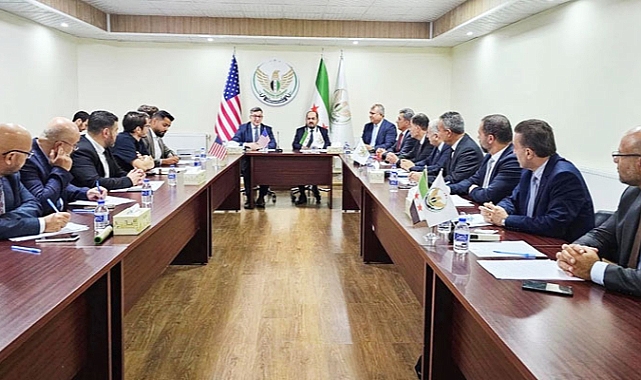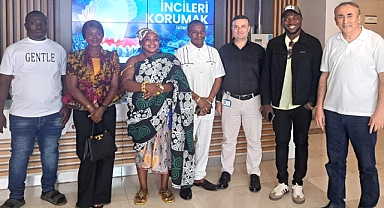Nicholas Granger, Director of the Syria Regional Platform at the US Department of State, met with the President of the Syrian Interim Government, Abdurrahman Mustafa, in Gaziantep. This visit included discussions on various issues within the headquarters of the Syrian opposition and provided significant insights into US policies in Syria.Details of the Visit and Meeting Content
Granger and his delegation participated in a Cabinet meeting of the Syrian Interim Government, evaluating efforts towards the region's development. The meeting addressed the restructuring of the National Army, the establishment of a Military Academy to train officers adhering to international human rights standards, and Turkey's support for combating terrorism, defense, regional organization, and service provision. Additionally, support for the political process to achieve a fair solution in Syria based on UN resolutions was reaffirmed.US Policy in Syria and Human Rights
Granger emphasized US support for humanitarian efforts and stabilization initiatives in Syria, discussing the challenges faced by the Syrian Interim Government and ways to overcome them. The US commitment to accountability for human rights violations in Syria and achieving real changes was highlighted.Relations with PKK/PYD and the Syrian Opposition
The US increased its contacts with opposition groups aligned with PKK/PYD. Granger’s previous visits also focused on strengthening these relationships. The US continues efforts to harmonize Syrian opposition groups with PKK/PYD, seen as a strategy against the normalization process between Turkey and Syria.Conclusion and Assessment
The US relations with the Syrian opposition and meetings in Gaziantep are part of efforts to reshape regional dynamics. These meetings are viewed as moves against the Astana process involving Turkey, Russia, and Iran. The US's new plans in Syria could lead to significant changes in the region.
Granger and his delegation participated in a Cabinet meeting of the Syrian Interim Government, evaluating efforts towards the region's development. The meeting addressed the restructuring of the National Army, the establishment of a Military Academy to train officers adhering to international human rights standards, and Turkey's support for combating terrorism, defense, regional organization, and service provision. Additionally, support for the political process to achieve a fair solution in Syria based on UN resolutions was reaffirmed.US Policy in Syria and Human Rights
Granger emphasized US support for humanitarian efforts and stabilization initiatives in Syria, discussing the challenges faced by the Syrian Interim Government and ways to overcome them. The US commitment to accountability for human rights violations in Syria and achieving real changes was highlighted.Relations with PKK/PYD and the Syrian Opposition
The US increased its contacts with opposition groups aligned with PKK/PYD. Granger’s previous visits also focused on strengthening these relationships. The US continues efforts to harmonize Syrian opposition groups with PKK/PYD, seen as a strategy against the normalization process between Turkey and Syria.Conclusion and Assessment
The US relations with the Syrian opposition and meetings in Gaziantep are part of efforts to reshape regional dynamics. These meetings are viewed as moves against the Astana process involving Turkey, Russia, and Iran. The US's new plans in Syria could lead to significant changes in the region.








